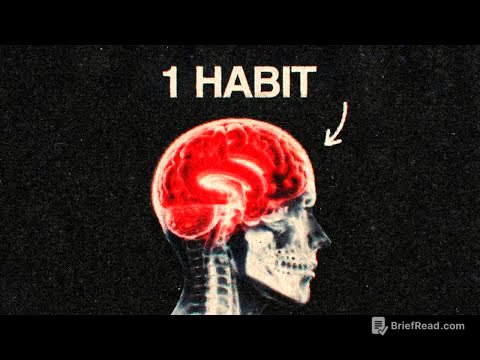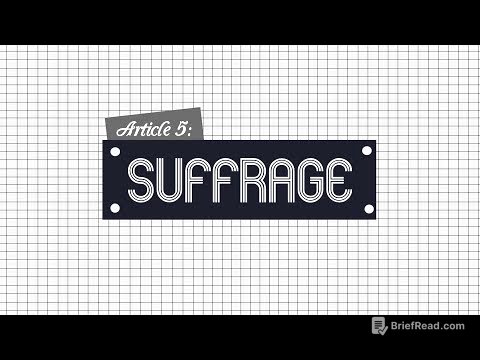TLDR;
This video by Easy English By Sujaata focuses on teaching simple, everyday English phrases. The lesson includes phrases for giving commands, asking questions, and making simple statements, all designed to help viewers improve their daily English communication skills.
- Simple phrases for daily use.
- Commands and simple statements.
- Questions for basic communication.
Stay Outside [0:56]
The phrase "stay outside" is introduced as a simple command. This phrase is useful for telling someone to remain outdoors.
So What [2:30]
The phrase "so what" is presented. This expression is used to indicate indifference or to challenge the importance of something someone has said.
Taste It [6:01]
The command "taste it" is taught, which is used when offering food or drink to someone and encouraging them to try it.
Don't Move [6:30]
The command "don't move" is explained. This phrase is used to instruct someone to remain still.
Anything Else [8:03]
The question "anything else" is taught. This is commonly used to ask if someone needs or wants something more.
Go Back / Move Back [8:19]
The phrases "go back" and "move back" are introduced as commands to retreat or move in the opposite direction.
Come Front / Go Aside [8:30]
The phrases "come front" and "go aside" are explained. "Come front" means to move forward, while "go aside" means to move to the side.
Get Down / Get Ready [8:49]
The commands "get down" and "get ready" are taught. "Get down" is used to tell someone to lower themselves, while "get ready" means to prepare oneself.
Don't Do This / Don't Do That [9:45]
The phrases "don't do this" and "don't do that" are explained as instructions to stop a particular action.
It's Getting Dark [9:58]
The statement "it's getting dark" is introduced, indicating that daylight is diminishing.
Show Me [10:43]
The command "show me" is taught, used to ask someone to display something.
Where Is She / Where Are You / Where Is He [11:13]
The questions "where is she," "where are you," and "where is he" are explained for asking about someone's location.
Write Down [11:27]
The command "write down" is introduced, instructing someone to record something in writing.
Must Do It [13:03]
The phrase "must do it" is taught, expressing the necessity of performing an action.
In My Absence [13:38]
The phrase "in my absence" is explained, referring to a period when someone is not present.
Thanks For Your Compliment [14:12]
The phrase "thanks for your compliment" is taught as a polite response to a positive remark.
A Piece of Good News For You/Her/Me [14:27]
The phrase "a piece of good news for you/her/me" is introduced, used to share positive information with someone.









![Baray Bhaiya Episode 74 - [Eng Sub] - Aijaz Aslam - Maya Khan - Rabya Kulsoom - 28th August 2025](https://wm-img.halpindev.com/p-briefread_c-10_b-10/urlb/aHR0cDovL2ltZy55b3V0dWJlLmNvbS92aS9vdHFoeWxDV01ERS9ocWRlZmF1bHQuanBn.jpg)